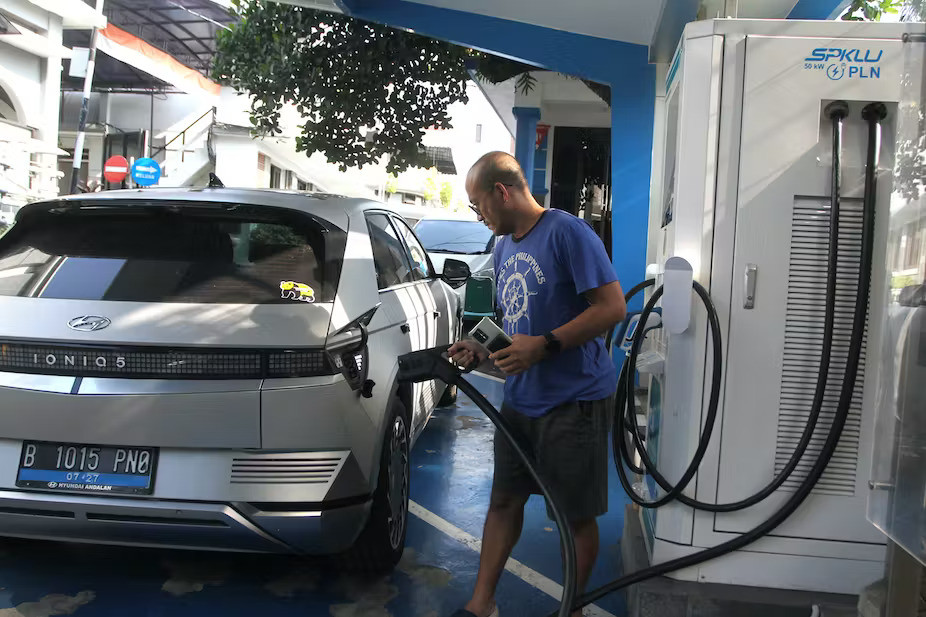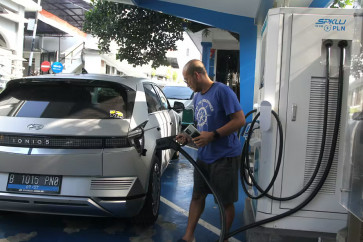Popular Reads
Top Results
Can't find what you're looking for?
View all search resultsPopular Reads
Top Results
Can't find what you're looking for?
View all search resultsInfrastructure strategies to develop robust EV ecosystem in ASEAN
A holistic approach that embraces renewable energy in developing the EV ecosystem, including charging stations, will drive EV adoption and pave the way to a greener, more prosperous ASEAN.
Change text size
Gift Premium Articles
to Anyone
D
uring its 2023 ASEAN chairmanship, Indonesia embarked on a mission to foster a more inclusive and sustainable economic region. This endeavor encompassed building a robust health architecture, ensuring food and energy security and maintaining financial stability in the region.
Yet among the multitude of priorities, one stands out as a beacon of progress: the electrification of transportation and embracing renewable energy. This vision sees ASEAN becoming a global leader in electric vehicle (EV) development, buoyed by the region's immense potential for reaching an estimated market value of US$2.7 billion by 2027.
At the core of this ambitious vision lies an unwavering commitment to environmental sustainability and energy security. EV development represents a holistic solution to some of the most pressing challenges of our time. EVs are inherently more efficient and produce zero tailpipe emissions. EVs can act as a bridge toward cleaner energy sources, facilitating the transition away from fossil fuels.
As ASEAN strives to curtail its carbon footprint, the widespread adoption of EVs is indispensable.
While land transportation is a major contributor to pollution and carbon emissions, EVs offer a compelling avenue to substantially mitigate these impacts. The growth of EVs is instrumental in achieving the zero-emissions targets set by ASEAN member states. Furthermore, by promoting domestic EV production and reducing its reliance on oil imports, ASEAN can bolster the region’s energy security.
To catalyze the expansion of EVs throughout ASEAN, member states have united to establish a comprehensive EV ecosystem. This cooperative initiative is underpinned by the ASEAN Leaders' Declaration on Developing the Regional Electric Vehicle Ecosystem, a landmark policy achieved in May at the 42nd ASEAN Summit in Labuan Bajo, East Nusa Tenggara.
Developing a resilient network of EV charging stations is paramount to facilitating widespread EV adoption. Drawing on lessons from developed economies like European countries, ASEAN states must invest in diverse charging solutions, including fast chargers along highways, workplace charging stations and residential charging facilities.



















